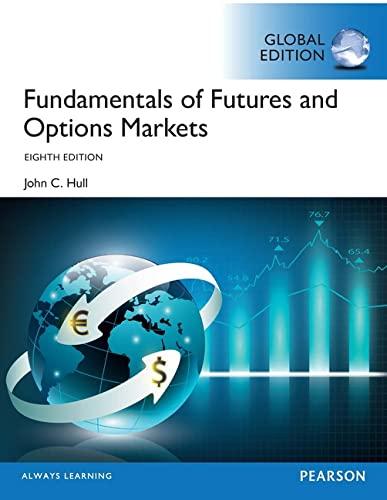Business Ethics Midterm Taken from the: Southeast Regional Business Ethics Case Competition (SERBECC) 2016 Case Publix and the Fair Food Program: Supply Chain CSR or Violation of Business Autonomy? t was January 16, 2014. and William (Ed) Crenshaw, CEO of Publix Super Markets, had ju USA Today that Walmart had joined the Fair Food Program of the Coalition of Immokalee Worker (CIW) Crenshaw anticipated that the pressure would now increase for Publ to join it too. He was right. Throughout 2014, CIW-sponsored protests at Publix stores continued, and in late spring of 2015 the CIW initiated a well-organized "North Carolina Publix Truth Tour" o protest at new stores in Publix's newest markets the upper southeast. Over the years since 2009, when they first asked Publi o support their efforts to improve working conditions on Florida's tomato fams, the CIW has regularly picketed Publix's corporate headquarters and local stores while publicly calling for Publix to join the Fai Food Program. The dispute between the CIw and Publix has been widely in newspaper articles, editorials, and in a recent documentary film titled Food Chains, which was released in late 20 Public pressure on Publix has come from a variety of sources, including a resolution by the Florida United Methodist Conference in June 2015. The CIW recently announced a new protest initiative to boycott Wendy's restaurants for the fast food chain's refusal to join the Fair Food Program. However even in the face of participation by strong name brands in the food industry and even with ng public pressure, Publix has not joined the Fair Food Program and has not met with the CIW The CIW's Fair Food Program is an agreement with major buyers of tomatoes that helps improve working conditions for farm workers. The program requires tomato buyers to pay an additional penny per pound of tomatoes.' Already, major retailers like Taco Bell, Whole Foods. Burger King. Stop & have joined the Fair Food Program Chipotle, Trader Joe's, McDonald's and othe Publix is the single largest purchaser of tomatoes in Florida and the largest employee-owned grocery chain in the United States. Founded a a ngle store 1930 in nter Haven, Florida. Publix has grow to more than 1.100 stores in six Southeastern state Publix has consistently and repeatedly indicated its rati for not joi e program Fair Food Program members' contribution to support worker wages and improvement of work conditions places responsibility on the wrong part ing workers fair wages ng appropria working conditions, says Pub is the job of government and the employers of the farm w blix's position statement affirms that don't believe paying the penny the right thing lo do for Publix or our suppliers...we believe it is the responsibilty of all our suppliers including Florida's farmers who tomatoes and other produce paying wages and providing work that comply with that if farmers need to the price of their tomatoes in working increase conditions, they should "put it in the pri and P workforce including X maintains Business Ethics Midterm Taken from the: Southeast Regional Business Ethics Case Competition (SERBECC) 2016 Case Publix and the Fair Food Program: Supply Chain CSR or Violation of Business Autonomy? t was January 16, 2014. and William (Ed) Crenshaw, CEO of Publix Super Markets, had ju USA Today that Walmart had joined the Fair Food Program of the Coalition of Immokalee Worker (CIW) Crenshaw anticipated that the pressure would now increase for Publ to join it too. He was right. Throughout 2014, CIW-sponsored protests at Publix stores continued, and in late spring of 2015 the CIW initiated a well-organized "North Carolina Publix Truth Tour" o protest at new stores in Publix's newest markets the upper southeast. Over the years since 2009, when they first asked Publi o support their efforts to improve working conditions on Florida's tomato fams, the CIW has regularly picketed Publix's corporate headquarters and local stores while publicly calling for Publix to join the Fai Food Program. The dispute between the CIw and Publix has been widely in newspaper articles, editorials, and in a recent documentary film titled Food Chains, which was released in late 20 Public pressure on Publix has come from a variety of sources, including a resolution by the Florida United Methodist Conference in June 2015. The CIW recently announced a new protest initiative to boycott Wendy's restaurants for the fast food chain's refusal to join the Fair Food Program. However even in the face of participation by strong name brands in the food industry and even with ng public pressure, Publix has not joined the Fair Food Program and has not met with the CIW The CIW's Fair Food Program is an agreement with major buyers of tomatoes that helps improve working conditions for farm workers. The program requires tomato buyers to pay an additional penny per pound of tomatoes.' Already, major retailers like Taco Bell, Whole Foods. Burger King. Stop & have joined the Fair Food Program Chipotle, Trader Joe's, McDonald's and othe Publix is the single largest purchaser of tomatoes in Florida and the largest employee-owned grocery chain in the United States. Founded a a ngle store 1930 in nter Haven, Florida. Publix has grow to more than 1.100 stores in six Southeastern state Publix has consistently and repeatedly indicated its rati for not joi e program Fair Food Program members' contribution to support worker wages and improvement of work conditions places responsibility on the wrong part ing workers fair wages ng appropria working conditions, says Pub is the job of government and the employers of the farm w blix's position statement affirms that don't believe paying the penny the right thing lo do for Publix or our suppliers...we believe it is the responsibilty of all our suppliers including Florida's farmers who tomatoes and other produce paying wages and providing work that comply with that if farmers need to the price of their tomatoes in working increase conditions, they should "put it in the pri and P workforce including X maintains









